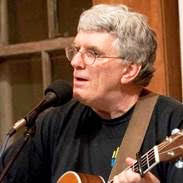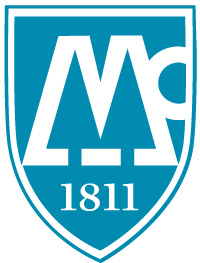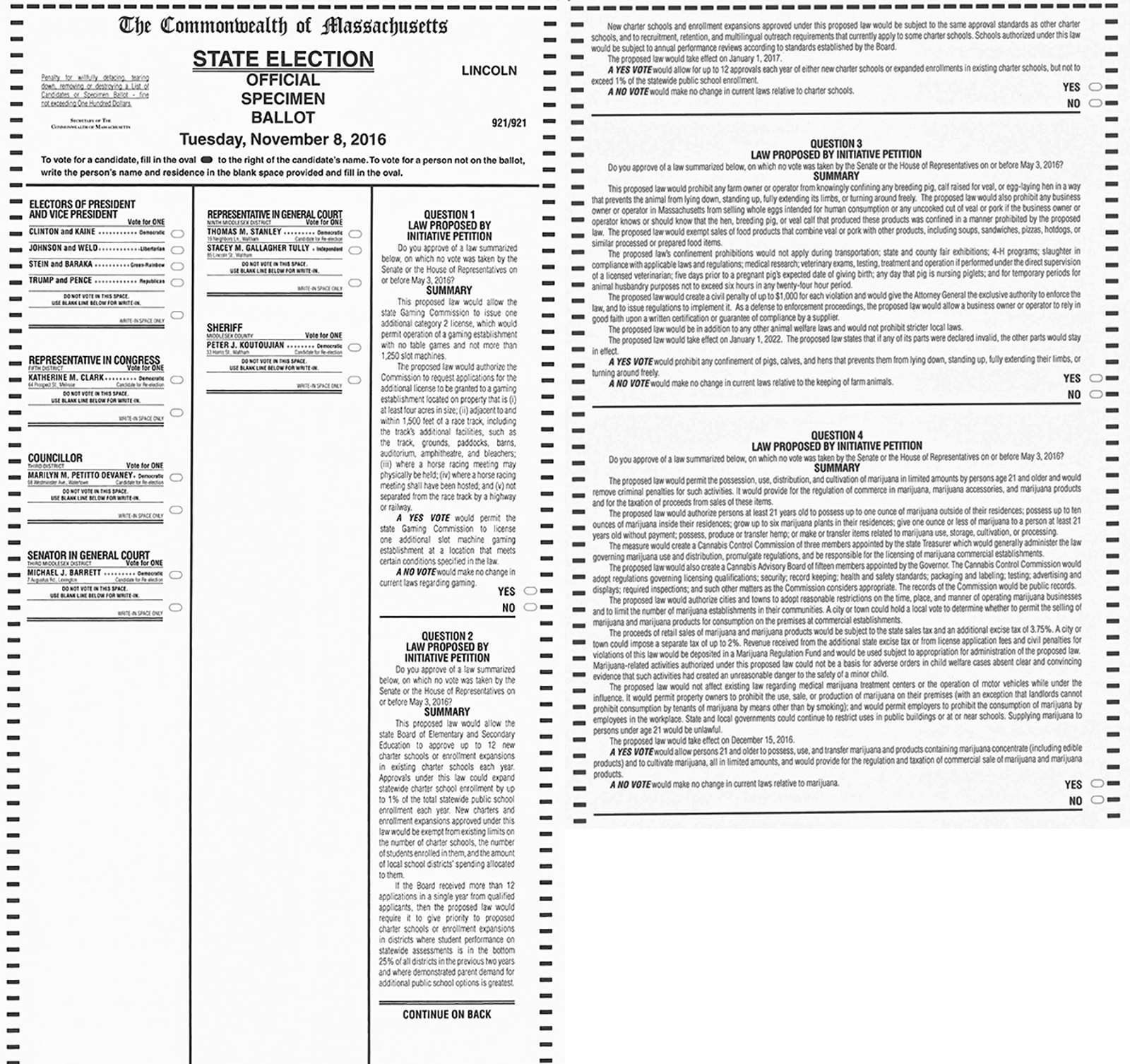 In the November 6 story titled “Kids plant bulbs to help next spring’s honeybees,” the adult in one of the photos was misidentified due to initially incorrect information supplied to the Squirrel. She is Lincoln community member Kate Dahmen.
In the November 6 story titled “Kids plant bulbs to help next spring’s honeybees,” the adult in one of the photos was misidentified due to initially incorrect information supplied to the Squirrel. She is Lincoln community member Kate Dahmen.
News acorns
Pie-ordering deadline extended
The deadline for ordering Thanksgiving pies to benefit (FELS (Foundation for Educators at Lincoln Sudbury) has been extended to Friday, Nov. 11. See the Nov. 2, 2016 “News acorns” for details on how to order.
Experts to discuss executive function strategies for students
Dan Levine and Melissa Wilson of Engaging Minds will present a parent workshop on executive function strategies for students on Monday, Nov. 14 from 7-9 p.m. in the Hartwell multipurpose room. Recently featured in The Boston Globe, the tutors at Engaging Minds specialize in developing and strengthening students’ executive function skills. Come learn practical tips to help your child better manage nightly homework, plan for short- and long-term assignments, get “unstuck” when initiating tasks, and organize personal and school belongings. This workshop is free and will include a presentation, small group break-out sessions, and time for Q&A.
deCordova holiday market, wine tasting
The deCordova Museum and Sculpture Park store’s annual Holiday Artists’ Market kicks off with an opening reception on Friday, Nov. 11 from 6-9 p.m. and includes a member discount of 20%, food and drink, live music, and a free gift-wrapping station. There will be evening and weekend hours and the event will run through December 31, click here for details.
Enjoy lively conversation and deCordova-inspired trivia at a tasting of a selection of wines from countries that Julian de Cordova visited during the early 20th century at “The Art of Wine” on Thursday, Nov. 17 from 6:30-8:30 p.m. led by wine expert Allan Tidd from Harvest Restaurant in Cambridge. Buy tickets online in advance ($25 for deCordova members, $35 for nonmembers).
Moose documentary on tap
The LLCT presents the film “Moose: Life of a Twig Eater” on Monday, Nov. 14 at 7:30 p.m. in the LLCT offices (145 Lincoln Rd., suite 201A). Moose populations across many parts of North America are in steep decline. This intimate hourlong nature documentary, filmed over 13 months in the wilds of Jasper National Park in of Alberta, takes viewers deep inside the world of moose to experience a mother’s love and a calf’s first year of life up close and personal. Free and open to all. Anyone with questions may call 781-259-9251 or email llct@lincolnconservation.org.
Charlie Ortolani at next LOMA night
 The next LOMA (Lincoln Open-Mic Acoustic) on Monday, Nov. 14 from 7-10 p.m. will feature Charlie Ortolani doing a half-hour set starting around 8:30. Ortolani plays rock, folk, country, roots, bluegrass and hybrids thereof, and his bands have opened for luminaries including Brenda Lee, Willie Nelson and Loretta Lynn. LOMA is a monthly event. Performers can sign up at the event or email Rich Eilbert at loma3re@gmail.com for a slot. Names of those who signed up by 7:15 are drawn at random. There is a sound system with mikes and instrumental pickups suitable for individuals or small groups.
The next LOMA (Lincoln Open-Mic Acoustic) on Monday, Nov. 14 from 7-10 p.m. will feature Charlie Ortolani doing a half-hour set starting around 8:30. Ortolani plays rock, folk, country, roots, bluegrass and hybrids thereof, and his bands have opened for luminaries including Brenda Lee, Willie Nelson and Loretta Lynn. LOMA is a monthly event. Performers can sign up at the event or email Rich Eilbert at loma3re@gmail.com for a slot. Names of those who signed up by 7:15 are drawn at random. There is a sound system with mikes and instrumental pickups suitable for individuals or small groups.
Mrs. Revere, powwow music and football at the library
The Friends of the Lincoln Public Library are sponsoring three upcoming cultural events at the library:
- Character reenactor Jessa Piaia will present “Rachel Revere: An American Patriot” on Sunday, Nov. 13 from 2-3:30 p.m. at the Lincoln Public Library. As Paul Revere’s wife, Piaia will speak on her life and compatriots and her husband’s famous ride of 1775.
- On Wednesday, Nov. 16 from 7-8:30 p.m., percussionist and author Craig Harris will present “Heartbeat, Warble and the Electric Powwow.” Explore the rich history of Native American music and how it has influenced many other genres of music.
- With football season in full swing, come find out what’s going on between the lines at “Football 101” on Sunday, Nov. 20 from 2-4 p.m. with Stacey Mulroy of Lincoln’s Parks & Recreation Department. Game refreshments will be served. Co sponsored by the Lincoln Council on Aging and Parks and Rec.
Lincoln DTC endorses Clark, Stanley, Barrett
The Lincoln Democratic Town Committee endorses Katherine Clark for U.S. Congress, Tom Stanley for State Representative, and Michael Barrett for State Senator.
Massachusetts and Lincoln have been well served by Congresswoman Katherine Clark. She distinguished herself in leading a protest on the House floor with Representative John Lewis to chastise the Republican led Congress for its refusal to pass two responsible and common sense gun safety bills.
Most recently, she successfully collaborated with Republican Congressman Glenn Thompson to pass her bill for Strengthening Career and Technical Education—a cause that has been advocated actively by the Lincoln Democratic Town Committee in the hope that workers in declining industries can learn and succeed in the 21st-century century economy.
Representative Tom Stanley speaks softly and doesn’t always advertise his accomplishments, but he has represented Lincoln well, particularly in support of the town’s application to pursue funding requests for school facility improvements, and representing Lincoln’s interests in funding requests to offset Lincoln’s costs of providing services to the Hanscom Air Force Base residents, all of whom live within the town of Lincoln.
Senator Barrett has been a leader in climate change and clean energy and has continued his fight to pass bills aimed at combating climate change, create energy diversity, and achieve energy sector compliance with the Global Warming Solutions Act. He has also introduced bills to change the current fixed rate income tax to a more equitable graduated income tax, and to repeal the sales tax exemption for jet fuel. He has been named Legislator of the Year three times and has been honored as one of the 10 best legislators in Massachusetts.
The Lincoln Democratic Town Committee is proud to have such a strong cadre of elected legislative officials. We encourage Lincoln voters to re-elect them.
Sincerely,
Barbara Slayter (co-chair, Lincoln Democratic Town Committee)
7 Trapelo Rd.
Letters to the editor must be signed with the writer’s name and street address and sent via email to lincolnsquirrelnews@gmail.com. Letters will be edited for punctuation, spelling, style, etc., and will be published at the discretion of the editor. Letters containing personal attacks, errors of fact or other inappropriate material will not be published.
Kids plant bulbs to help next spring’s honeybees
Hundreds of daffodils and crocuses will bloom next spring in the People for Pollinators meadow thanks to the efforts of 25 Lincoln School students.
The Lincoln Land Conservation Trust (LLCT) and the METCO Coordinating Committee organized the October 19 planting of 1,000 daffodil and crocus plants at the People for Pollinators meadow close to the Smith school building. Twenty-five Lincoln School students from Lincoln and Boston participated and were joined by students from the Birches School and community members.
“The METCO Coordinating Committee is always looking for fun ways to engage our Boston-based and Lincoln-based students in exciting and enriching community-building events, and the pollinating garden event was the perfect opportunity for us,” said Pilar Doughty, METCO Coordinating Committee chair. “Our students were able to meet and collaborate with individuals from various schools and organizations across our community. As an added bonus, they learned more about pollinators and gardening techniques, and helped to make an impressive contribution to our pollinator ecosystem.”

Pilar Doughty (second from left), the Lincoln METCO Coordinating Committee chair, gets down in the dirt with students at the pollinator meadow.
People for Pollinators members prepared the meadow site for planting and helped with the bulb installation. The LLCT and Conservation Commission loaned equipment to help the effort, including shovels, trowels and rakes.
Daffodils and crocuses bloom in early spring and provide an essential early source of nectar for emerging queen bumblebees. Unlike honeybees, which can survive in a colony of many thousands over the winter, only a queen bumblebee survives and hibernates, and then re-emerges the following year to establish new colonies and the next generation of bumblebees, which help pollinate many local foods such as cranberries and apples.
The meadow got its start at a community-wide planting event last spring after several organizations and schools collaborated to form People for Pollinators, which aims to protect and create native habitat that supports the vitality of pollinators in the face of bee colony collapse.
Letter to the editor: elect Tully as Lincoln’s state rep
To the editor:
When I first heard Stacey Gallagher Tully was running for the office of state representative, I immediately fired off an email asking her to join me for coffee. She was quick to agree to meet with me and I am writing to ask you to consider giving her your consideration in the election on November 8.
Stacey comes from a family with a long history of working on the Kennedys’ campaigns, and Stacey has spent time in D.C. and Georgia working with Jimmy Carter. She too has a long history of public service and is ready to take the step of moving into the legislature. You may have seen Stacey at Donelan’s, at the transfer station or at one of a number of locations. She has come to Lincoln Woods at least two times and at a coffee hosted there last recently she told us of her plans to hold office hours in Lincoln and how much she looks forward to working to bring both communities together to solve issues we have in common.
The obvious issue is traffic. Driving off Route 128 onto Route 20 and then Route 117 is not just a Waltham issue. As most of us know, it has a huge impact on us here in Lincoln. We need a representative that will talk to us, the people of Lincoln, who will work with us, who will be accountable to us. Stacey Gallagher Tully is asking to be that person. She has a proven track record working on senior issues and health issues in Waltham. She has a history of serving the people of her community and would like us to be part of her community.
Contrast this with her opponent Mr. Stanley, who is without a doubt committed to Waltham—but Lincoln, not so much. To be sure, Stanley has helped the administration in Lincoln gain access to the right people in Boston; after 16 years he knows his way around. As for the rest of us in Lincoln, he has been absent. In fact, he is quoted in the recent Lincoln Journal as saying he spends all his campaign time in Waltham. Lincoln is not even on his agenda.
Many of us remember the days not so long ago when we had a state representative who spent time in Lincoln, talked with us, the residents, and worked to serve all of us in Boston, not just the administration. A vote for Stacey Gallagher Tully is a vote for representation of the people, by the people.
Sincerely,
Sharon K. Antia
165 South Great Rd.
Letters to the editor must be signed with the writer’s name and street address and sent via email to lincolnsquirrelnews@gmail.com. Letters will be edited for punctuation, spelling, style, etc., and will be published at the discretion of the editor. Letters containing personal attacks, errors of fact or other inappropriate material will not be published.
ZBA says no to McLean Hospital
 The Zoning Board of Appeals voted 4-1 on Thursday night to overrule a previous finding that a proposed McLean Hospital residential facility is a permitted use of the property under state law.
The Zoning Board of Appeals voted 4-1 on Thursday night to overrule a previous finding that a proposed McLean Hospital residential facility is a permitted use of the property under state law.
McLean bought adjoining parcels at 16 and 22 Bypass Road last spring with the intention of putting 12 beds for boys age 15-21 in the large home on one of the properties. The goal was to have boys with borderline personality disorder live there for several months while receiving dialectical behavioral therapy to help them learn to function better.
Lincoln zoning bylaws prohibit uses other than residential in that area, but McLean claimed an exemption under the Dover amendment, which allows religious and educational facilities in residential areas. Building Inspector Dan Walsh and town counsel Joel Bard agreed with the hospital’s claim that the proposal constituted an educational use. But a group of neighborhood residents appealed to the ZBA, which sided with the residents after a hearing that featured much debate over whether the proposed facility was primarily educational or medical/therapeutic.
“I’m certainly a fan of the notion that you don’t have to have traditional classrooms to have it be educational, and I’m favorably inclined to the idea that education is rolled into therapy, but the Dover amendment is not written in a way to say that education is therapy and therapy is education. This is closer to therapy than education,” said ZBA member Bill Churchill.
“The primary end goal is treatment. The curative aspect is the goal here,” said ZBA member David Henken.
“I do think this is treatment. There’s obviously some education involved, but I don’t think it’s the primary purpose,” agreed board member David Summer.
“I don’t think this is an educational purpose that is the intent of the Dover amendment,” ZBA chair Joel Freedman said.
Board member Eric Snyder said he would vote “based on what he read from various doctors” on both sides of the issue. He ultimately cast the lone dissenting vote.
Freedman had a word of caution for those against the proposal, however. “The idea that Dover amendment is something that has come in and usurped local zoning is something I disagree with very much,” he said. “It’s a good thing when a community like Lincoln has to participate in things… that may be distasteful or may not be what they want. There’s no credence to the idea that there needs to be protection here.”
The ZBA achieved the minimum of four votes that are required to overturn the building inspector’s finding. Board member Kathleen Shepard was not at Thursday’s meeting and Vinit Patel recused himself from the vote.
McLean officials declined to comment after the meeting.
Sunrise, sunset

Harold McAleer’s picture of a sunrise over Farrar Pond shares many of the colors of his earlier photo of a summer sky.
Readers may submit photos for consideration for Lincoln Through the Lens by emailing them to lincolnsquirrelnews@gmail.com. If your photo is published, you’ll receive credit in the Squirrel. Photos must be taken in Lincoln and include the date, location, and names of any people who are identifiable in the photo. Previously published photos can be viewed on the Lincoln Through the Lens page of the Lincoln Squirrel.
News acorns
More than one-quarter of voters cast early ballots
As of Wednesday morning, 28 percent of the Lincoln electorate has voted, according to Town Clerk Susan Brooks. Though her office has not been tracking ballots cast by registration, the largest segment of the Lincoln electorate is unenrolled (53 percent), followed by Democrats at 36 percent and Republicans at 11 percent. Registered voters can cast their ballots in the Town Clerk’s Office (16 Lincoln Rd.) through Friday, Nov. 4 at 4:30 p.m. Hours for voting are 8:30 a.m. to 4:30 p.m., and until 8 p.m. on Thursday.
Order pies by Thursday to benefit L-S teachers
The deadline to order Thanksgiving pies from the Foundation for Educators at Lincoln Sudbury (FELS) is Friday, Nov. 4. Online and paper orders are welcome. Proceeds support grants to Lincoln-Sudbury Regional High School faculty and staff, allowing them to pursue their professional and personal interests and passions. Click here for the online form, or here to download a paper form. Pies will be available on Tuesday, Nov. 22.
Minuteman mulling middle-school career exploration program
Minuteman High School is looking for feedback from in-district middle school families on whether their children might like to participate in an after-school career pathway exploratory Program, possibly to begin next spring. The program would provide a wide variety of career exploration opportunities and an opportunity for middle school students to identify early on what they love to do and what they do well.
Minuteman will hold an informational evening on Wednesday, Nov. 9 at 4 p.m. in the Paul Revere Room for parents and guardians. Register for this event by taking a brief online survey. Lincoln has voted to leave the Minuteman district, but the departure does not take effect until July 2017.
Lectures on Israel/Palestine
The GRALTA Foundation continues its exploration of the Israel-Palestine conflict with two lectures in November. Boston College sociology professor Eve Spangler will speak on “Understanding Israel/Palestine Through a Human Rights Lens” at the Lincoln Public Library on Thursday, Nov. 10 at 7 p.m. and Sunday, Nov. 13 in Bemis Hall at 2 p.m. Her popular seminar, “Social Justice in Israel/Palestine,” culminates when she leads a trip to the region during BC’s winter break. There is no charge, and light refreshments will be served.
Tea and gift ideas with children’s librarians
Join the children’s librarians for tea, scones and book suggestions for holiday gift-giving for grandchildren and other young readers in your life at a Grandparents’ Tea on Wednesday, Nov. 16 from 4-5 p.m. in the Lincoln Public Library Tarbell Room. This event is open to all adults, not just grandparents.
Officials discuss ways to tweak Town Meeting
 How can Town Meeting be made more accessible for busy parents, the homebound, and others who might like to attend but can’t? Town moderator Sarah Cannon Holden and selectmen brainstormed several ideas at the board’s October 24 meeting.
How can Town Meeting be made more accessible for busy parents, the homebound, and others who might like to attend but can’t? Town moderator Sarah Cannon Holden and selectmen brainstormed several ideas at the board’s October 24 meeting.
The topic came up after several residents discussed the matter on the LincolnTalk email list over the summer (list members can find the discussion thread by clicking here—login required).
While some in the LincolnTalk discussion celebrated Town Meeting as a shining example of New England participatory democracy, others said it was inefficient and did not allow for maximum voter participation.
“The current system is akin to holding an election that instead of giving people options, forces them to take an entire day off of work/family/obligations and sit in a room for 5-7 hours before eventually casting a vote at a not-previously-determined time,” one resident wrote.
Another wrote that the notion of Town Meeting as it’s now conducted is “fairly antiquated” and “seems to indicate that citizens should adapt to the arbitrary choice of government administration instead of adapting the administration of government to the needs of the citizens.”
“Civic engagement is important, yet I would think a true democracy would find ways to give everyone an opportunity to participate,” wrote a third resident who endorsed the idea of mail-in voting.
At the selectmen’s meeting, Holden and other noted that Lincoln can’t change its form of government without an act of the state legislature. Like the majority of the 351 cities and towns in Massachusetts, Lincoln has an open town meeting form of government (54 have a city/town council and 36 have a representative town meeting, according to the Massachusetts Municipal Association). However, there is some leeway in terms of the timing; Town Meeting can be held over two or more evenings, for example.
Other ideas suggested at the selectmen’s meeting included video-streaming the entire meeting so people could watch remotely and come in to vote when an item of interest came up, or expanding the consent calendar. The consent calendar is a list of warrant articles that officials have deemed non-controversial beforehand and that are voted on as a group, with the exception of individual items for which a resident has requested a separate discussion and vote.
Holden noted that Town Meeting is already divided such that finances and bylaws are usually discussed and voted on in the mornings, with public policy issues coming after the lunch break. She also noted that she does her best to encourage shorter presentations by town officials and trying to limit the length of discussions, though “it’s hard to cut off [a resident] in a sense arbitrarily” or by a set number of minutes or comments.
Holden acknowledged that there was an overflow problem at the Special Town Meeting in 2012, when hundreds of people showed up for an important school funding vote. She announced the vote about 15 minutes ahead of time knowing that the auditorium doors would have to be closed first, since it was sure to be a hand-counted vote as opposed to a voice vote. However, some people were not able to get in because of the crush, and although there was overflow space in the gym next door, it’s unclear whether they were signed in, so they could not vote.
Selectman James Craig said the most frequent suggestion he had heard from those with school-age children was to have a defined time period for all voting, such as 1-2 p.m.
Pushback from selectmen
“I’ve been going [to Town Meeting] since I was a kid, and I have a sort of instinctive sort of pushback” to this sort of change, Selectman Peter Braun said. “This is an important event in our community. It’s really important for people to hear each other and see each other and participate in democracy that a war was fought over originally. I feel a little personal constraint over saying ‘show up when you feel like it and vote when you’re here’.”
Lincoln is not the only town facing this issue. Other towns have tried things like having Town Meeting over two days, “and they all say it doesn’t seem to matter, you get the same response. He suggested that Holden do a benchmark study of “what other towns are doing to try to address these issues.”
Nevertheless, Lincoln’s Town Meeting participation rate is one of the highest in the state, Town Administrator Tim Higgins said.
“This will sound a little harsh, I have to admit… but I have a really hd time understanding why someone can’t hire a babysitter, and one with a car if necessary” for chauffeuring children to activities, said Selectman Renel Fredriksen, noting that she always attended Town Meeting even when her children were very young. “It’s one day a year… if you had a wedding, would you skip it because you had to go to a soccer game? If someone says ‘I can’t go because of X,’ then you’re clearly making it a lower priority than whatever X is. It doesn’t parse for me.” Citizens should know the issues and “show up if they care, and if you don’t care, that’s fine,” she said.
“There’s some truth to that, but at the same time, I do feel like we need to listen,” Craig said.
“The issue is accessibility and disenfranchisement of people who don’t have the ability who literally cannot attend Town Meeting, not their level of care or concern about town issues,” resident Margit Griffith said. “When you’re looking at opportunities to vote, you have to look at people who can’t—not won’t, but can’t.”
At the close of the discussion, Holden said she would look at having more items on the consent calendar, and perhaps distributing more digestible information (in print and online) ahead of time as a way of shortening presentations and questions at Town Meeting.
Letters the editor supporting ‘yes’ on Question 2
Editor’s note: See previous letters on this issue below.
To the editor:
I have been reading and thinking but not posting about charter schools until now. As I drill down into the arguments, it seems to me that the progressive view as espoused by Sara Mattes, for example, has at its core the desire to maintain political control over the schools. I see charter schools as a disruptive technology, as creative destruction. With creative destruction, something new comes about that completely changes the old paradigm so much that it destroys the old paradigm and replaces it with something different.
I think that those who are opposed to having more charter schools in Massachusetts see this paradigm shift very clearly. At the same time, I find Jay Kaufman’s letter ludicrous. He says that studies show that better teachers are the answer to better schools. If that is the case, why do we not already have them? Why have the schools in the U. S. showed a very clear decline over the past 40 years? There is the concern that parents choosing charter schools will take money away from the public schools. In Lincoln, people are affluent enough that if they do not like the public schools, they pay for private schools—in fact while still paying the taxes to support the public schools. Impoverished urban parents do not have that luxury. Why punish the people in Roxbury out of a desire to protect the Lincoln schools? Charter schools give them a real choice for a better education and that outweighs every other consideration in my mind.
Sincerely,
Colleen Katsuki
226 Old Concord Rd.
To the editor:
I was raised in a family of public schools teachers and educators. I myself taught in the Somerville public schools. I applaud and support public schools that properly educate their students so they can become productive and contributing members of society. And I also support parents who seek alternatives if their schools cannot educate their children.
That’s what many of us in Lincoln have done, made a choice and moved to a community where we were told there were good schools. The only difference between the 33,000 parents who want the best education for their children through charter schools and many of us is their economic status. Low-income and working-class parents don’t have many choices. I support the parents’ right to choose their children’s education. I am concerned that people who will not be affected by the outcome of this vote could vote no and take away other parents’ chance to do what’s best for their child.
I understand public education in Boston because I have worked with teens from Roxbury, Dorchester, and a low-income Latino neighborhood of Jamaica Plain for over twenty years. When I worked at The Food Project, teens from Boston neighborhoods worked side by side with teens from Somerville, Waltham, Lincoln, Wellesley, Lexington, etc. It was painful to observe the consequences from the profound differences in academic rigor, expectations and exposure. Too many of the teens from the Boston schools had difficulty doing the simple math at the farmers’ markets and struggled with any writing assignment, no matter how minimal. It wasn’t about I.Q. It was about a lack of educational opportunity. To make things worse, most of these woefully under performing teens were receiving good grades, so they rejected our offers for tutoring because they were told by their teachers that they were doing well.
The town of Lincoln participates in the METCO program because its residents already understand that a significant number of the Boston public schools are underperforming. If the kids we bring out to Lincoln every day deserve to get a good education, so do the 33,000 others kids on waiting lists for charter schools. Supporting charter schools means they have a chance to have a quality education near where they live.
It is also important to note that the quality of one’s education is a very significant contributor to our increasing economic inequality. Being poorly educated means being under employed or unemployed. That is a tragedy for the individual, a significant financial burden for society, and is potentially disruptive to our civic order. The financial issues regarding charter schools are specious but the financial and societal consequences of having significant percentage of teens/young adults under prepared to participate in our society are enormous and will, one way or another, affect us all.
If we broaden educational options, not just through charter schools, more children will be better served, and more innovation, diverse perspectives, and cross fertilization of ideas will occur. As Colleen said, the schools in the U.S. showed a very clear decline over the past years. We need to dilute the government monopoly on education—take it back and create new models more appropriate for the 21st century, our rapidly changing society and world.
Sincerely,
Pat Gray
Goose Pond Rd.
Previous letters:
- Letters to the editor on both sides of charter school question
- School Committee urges ‘no’ vote on Question 2
Letters to the editor must be signed with the writer’s name and street address and sent via email to lincolnsquirrelnews@gmail.com. Letters will be edited for punctuation, spelling, style, etc., and will be published at the discretion of the editor. Letters containing personal attacks, errors of fact or other inappropriate material will not be published.


